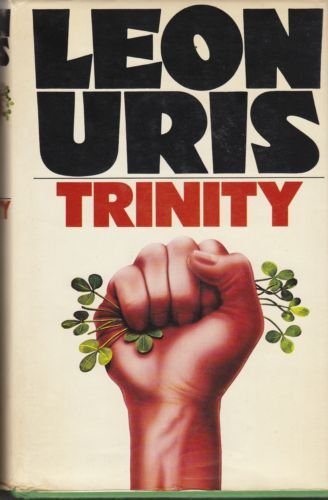
Trinity is bad history but powerful propaganda. The novel’s heroes plan revolution in the face of hopeless odds they gladly lay down their lives, eager to embrace a defeat that may somehow “stir the ashes of people into a series of even more glorious defeats” so that “over the land long dead stirrings” will at last be heard (731). It is a paean to blood sacrifice, to the idea that the chosen few who are prepared to take upon themselves the burden of history can themselves make history, that blood sacrifice is a noble and a cleansing thing, that a glorious defeat is a prerequisite to prevailing, that in death there is victory.

It feeds the myth of heroic opposition in the face of impossible odds.

Trinity is a romantic, sentimental fiction about Ireland’s fight for independence.


 0 kommentar(er)
0 kommentar(er)
